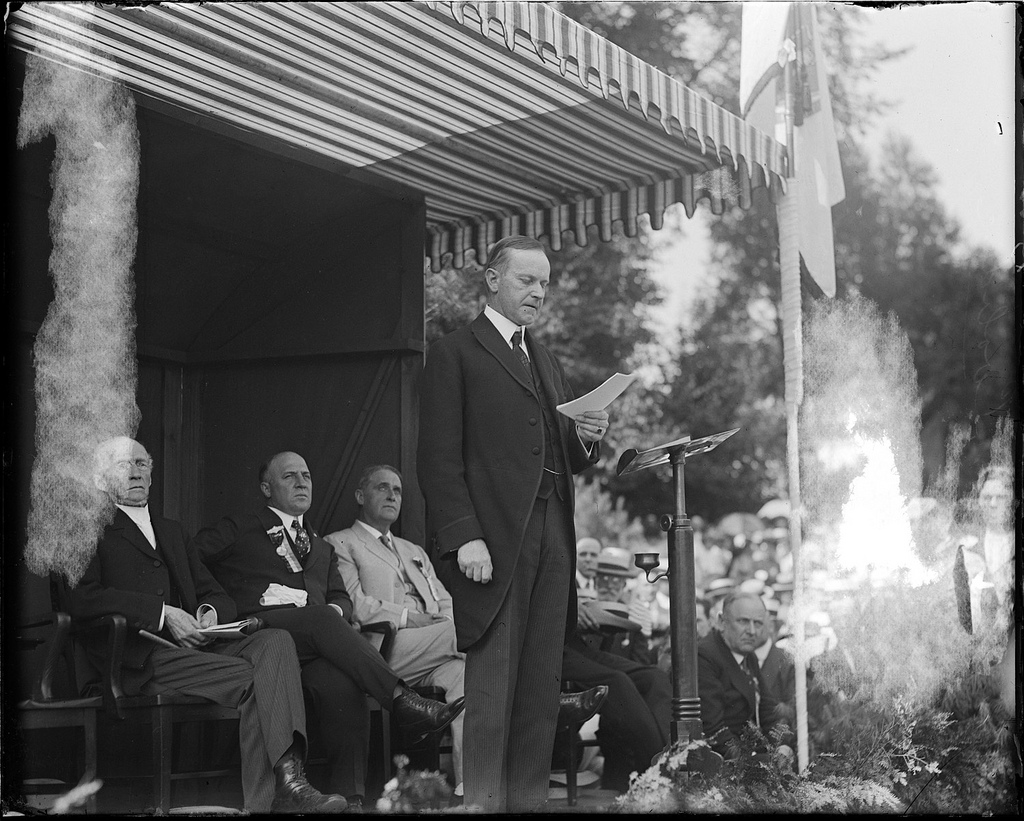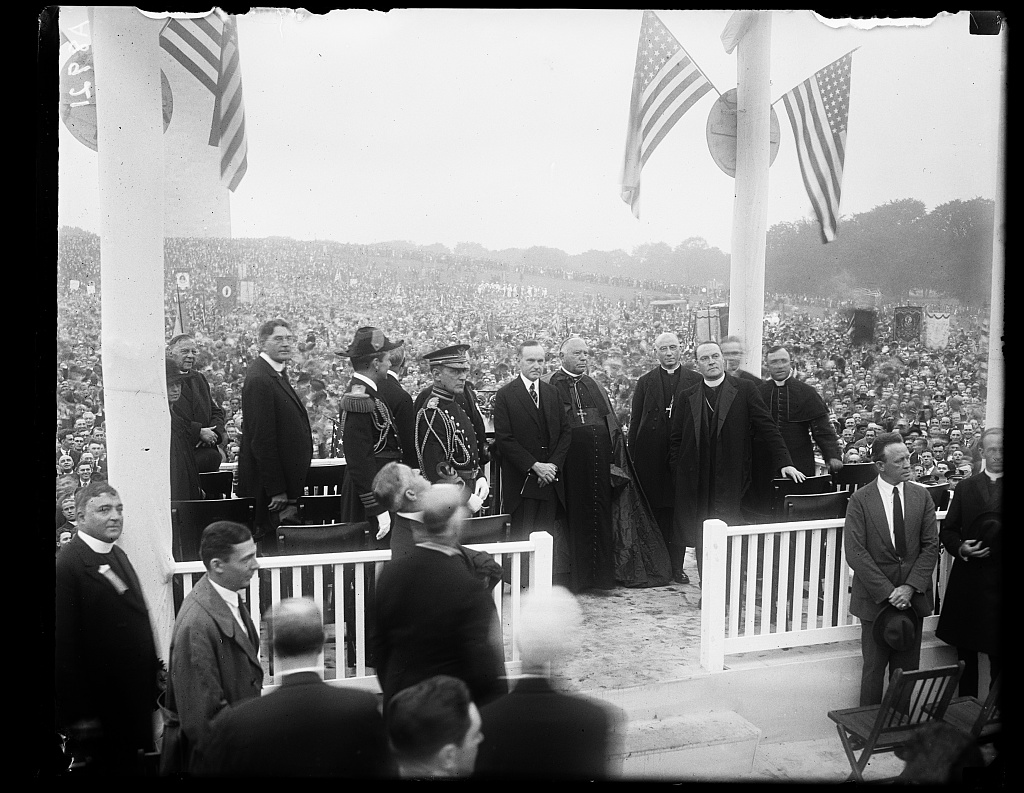
Every Democratic platform is a strange mixture of a promise of economy and a promise of more reforms that mean only more taxes and more debt. Now, I doubt if this expense can be materially decreased. I have made that statement during this campaign. It is confirmed by my experience as the Mayor of a city and by a study of the state finances. I do believe a Republican governor can check it, and I am as firmly convinced that a Democratic administration will increase it.
It is the policy of the Democratic party in these days to have government do everything. There is scarcely an activity of life which the Democratic party will not vote to turn over to the government…The framers of our government had seen the evils of government monopoly; they knew from experience that government business meant an end of private business. They believed in the freedom and the independence of the individual. They drew a constitution that prohibited the use of public money for private purposes with the same care that it prohibited the creation of a nobility. Now the Democratic party is attempting to repeal this constitution. They are attempting to create a nobility in business, supplied with public money, supported at public expense, against which the private individual will be as powerless as the serf was powerless against the noble. That is the real meaning of government ownership — the limitation and the extinction of personal freedom and personal independence.

There is another tendency of Democratic principles in the limitation of freedom. We are extending government aid in all directions — much of it helpful, much of it necessary, but it is a dangerous tendency. We ought to create opportunity; we ought to give every protection. But we ought not to provide a privileged class at the expense of the tax-payers. We ought not to work toward a condition where one class lives on the government and the other class pays the taxes. I want to repeat that self-government means self-support.
We have established great supervising bureaus. They have enormous inquisitorial powers. They may be made instruments of good or of great evil. They are both state and federal. We call them Boards and Commissions. They need men of the broadest outlook. Their duties should be supervision and control — not operation. They should stand in the place of policemen, not of owners. Under Democratic theories and Democratic opportunities, this distinction is breaking down. The industries of the State do not object to all reasonable police supervision. They cannot remain independent and have government operation. The Democratic party in state and nation is making an experimental laboratory of our industries. Under this system, independence will vanish. The whim of an inspector is set over the operation of all business.

We do not object to supervision. The Republican party established it. We do object to attempted operation without responsibility. Here is where the state and nation needs the return of our party to power. Ruthless and unskilled interference is breaking down our industries. The slim margin of profit is vanishing under the expense of unbusinesslike restrictions. You need the Republican standard in the appointing power; you need it to control and supervise Commissions. Unless this is speedily restored, danger and destruction wait…
Give us a Republican administration that will make appointments on merit, not political expediency. Let us return to Republican ideals of supervision under the law; we do not need more legislation. Repeal even is unnecessary. What Massachusetts needs — what the Nation needs — is a wise administration of the law. Look not to the legislature for relief — look to the executive.
— Senator Calvin Coolidge, Address in East Boston, September 2, 1915
